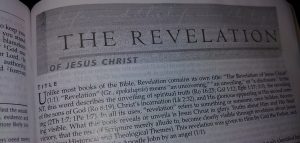2022 July 24 Sermon – Jesus said, “I AM!”

Transcript:
After our sermon series that ended last week, I thought it would be a great follow-up to look at Jesus Himself, the man whose attributes and sayings we have studied over the last couple of months. The best text for this for me is Mark 14:60-64, which we just read. This at first glance is a depressing topic, because our Lord Jesus is in the middle of three illegal trials that ultimately became the worst miscarriage of justice of all time, but as it turned out, for everyone’s benefit!
Where we joined the story in Mark, the Lord Jesus Christ is being interrogated by Caiaphas the High Priest of the nation of Israel. For some time, they had tried to find two people to have matching stories of some activity they could construe as criminal, but they could not. I believe it was for this reason that Caiaphas asked the operative question in the text. It was the first honest question that had been asked of Jesus in that whole affair. “He asked, “Are you the Messiah, the Son of the Blessed?” Knowing that Jesus really is God, one has to think that He knew that it was a trap, and that if He told the truth, He was walking into it with both eyes open. So in an example of things to which attention should be paid, He answered with the truth! He said, “I am! And you shall see the Son of Man sitting at the right hand of Power, and coming with the clouds of heaven.”
I’m sure you have heard the tired old argument about how Jesus never claimed to be God, right? I know I have, and for about 37 years now, and that’s only the time I’ve been a Christian. This passage actually says otherwise. Question: How many of you know that “I AM” is the name that God gave Moses when Moses asked His name? [Pause for answer] Let’s look at the passage, which we read earlier this morning. Exodus 3:14 says, “God said to Moses, “ I AM WHO I AM”; and He said, “Thus you shall say to the sons of Israel, ‘I AM has sent me to you.’” What God told Moses was a form of the Hebrew word “hayah,” the verb “to be.” In fact, he gave the first person of that in the text, God said “Eeweh,” meaning “I am.” And when the ancient Hebrews heard this, they gave a response in the third person: Yahweh, meaning “He is.” Oh look, take out the vowels, and you have the Tetragrammaton, the name of God, Yod Hey Vav Hey. Sometimes that is also pronounced Iehovah [that’s the Latin, we spell it with a J in English], and I believe it was William Tyndale that is credited with that.
As to how that relates to our text this morning, I have to give a background detail. Jesus spoke both Aramaic and Hebrew. When he was speaking to the people, He pretty much always spoke Aramaic. When He spoke to the Jewish Leadership, He spoke Hebrew, at least according to the majority of Commentators I examined. Although the point is not dependant on Jesus speaking Hebrew, because this works in any language, at least to me, it takes on special significance if He was speaking with the High Priest in Hebrew. Picture the scene. The High Priest that year was speaking, demanding to know if He was The Son of the Blessed, universally recognized as one of the names of God to the Jews. What else would the man who embodied the Way, the Truth, and the Life answer? He had to speak the words! And from the rest of what He said, He wasn’t shy about it. He said it. “Eeweh!” I AM! And He didn’t stop there. He went on to quote from two Old testament Passages that all of the spiritual intelligentsia that defended that. The first of those was Psalm 110:1, which reads, “The Lord says to my Lord: “Sit at My right hand until I make Your enemies a footstool for Your feet.”” He is seated there right now, with the Father on His throne, Beloved. And the second reference that the Lord Jesus spoke comes from Daniel 7:13, and that verse talks about the Son of Man and how He came to the Ancient of Days on the clouds of Heaven. With one sentence, Jesus claimed to be God three different ways, how about that? And everyone in the room would have gotten every one of those references. Something we talk about constantly in our Berean Nation Bible Studies is the need to understand cultural references in Scripture, because at time, it adds meaning, and in this case gravitas to the meaning of Scripture. Not only did Jesus claim that He was God, and have all of the authority to do and say what He did and said, He was in His right mind at this moment and was in fact choosing His response with care. He claimed in this very statement deity and all that it implied.
And we can see that in the response of Caiaphas. I once heard a former Law Student by the name of Josh MacDowell explain some of the finer points of Jewish Law at the time of Christ. When the High Priest, who was also a senior judge on the Jewish Council known as the Sanhedrin, mad a ruling on a case, He would pronounce the verdict, and then make a small tear in the very edge of the bottom of his garment. It was kind of like notches on a belt in the sense that it kept a count of the cases he decided. There was a single exception to this verdict/tear rule—the case of blasphemy. In that case, if the verdict was innocent, no tear was made. If the verdict was guilty, then the tear was made first, and then the verdict was pronounced. Look at the passage. Which happened here? The latter. The tear, then the pronouncement. That meant the High Priest found that Jesus was guilty of claiming to be God! Our Lord was falsely convicted on a blasphemy charge! And the whole of the Sanhedrin council agreed! As such, they all sentenced Him to death. We know how the rest of the story goes, He was escorted to Pilate, who found no fault, so Pilate sent Him to Herod, who sent Him back to Pilate, who washed his hands of the whole affair symbolically, though not in reality, and then had Him beaten first in an attempt to save His life, and then ultimately as an act of mercy so that He would die more quickly.
Jesus, Himself God the Son, second person of the Godhead, had to have known what was going to happen before it did. Recall his prayer session mere hours earlier, in the Garden of Gethsemane. He cried out to not have to go through this if there were any other way. And yet there was not, so He settled to do the Father’s will and not His own, just as His followers today must do. He knew each of the men that hit him, and yet did not answer their challenge to prophesy the name of the person who hit Him. He suffered the indignity of three illegal trials that night and into the next day. There was nothing right about anything He went through because of this incident. And yet He did it.
Does this leave you with the same question as it does me? WHY? Of all twer he people through all time, WHY would HE ALLOW Himself to go through THAT? Take heart friends, there is an answer. I’m not sure you’ll like or even agree with it, but it is the most important thing you will ever hear, and here it is, so pay attention!
He did it for you.
You heard me correctly, He did it for ALL of us. Do you recall the events described in Genesis 3? Ish and Isha [that’s the Hebrew] or Adam and Eve were our first parents. They had complete run of the garden at Eden. They could literally eat the fruit off of any tree in the garden—save one—the tree of the Knowledge of Good and Evil. I don’t think I need to remind you which fruit they ate—with devastating consequences—and for which they were cursed and kicked out of the garden! Those actions that they took tainted us all with sin. The concept, which is demonstrated from the very beginning of scripture here is called radical depravity. Because of their choice, we are all tainted with sin in the same way. I know this term may offend people, but we are all radically depraved. We cannot help but sin and violate God’s holy standard. It is simply who we are. Romans 3:10 says, “as it is written, “There is none righteous, not even one…” And that isn’t just Paul saying that, he’s quoting both Psalm 14:1c and Psalm 53:1c.
I can hear the objections. But I’m a good person! Really? According to your own imaginary standard maybe, but against the eternal standard of God’s moral law, no one measures up, not me, not you, not anybody. If we were to take 45 minutes or so (don’t worry, we won’t this morning), I could convincingly show that we humans, in fact most of us all personally, have violated all ten of those moral laws called the Ten Commandments. An example of that would be, “Have you ever told a lie?” Now I have done this before, and usually all of you will admit that. That makes you a liar, and it is a violation of the commandment that says, “You shall not bear false witness.” All of those laws are like that. Against that standard we have all broken multiple of those laws. Because the Scripture is clear that we will be judged by our deeds (we aren’t saved by our deeds, it’s true, but we are judged by them because that is the proof of what you actually believe), and because that is the standard by which we are measured, we are ALL in a LOT of trouble. And that’s the reason Jesus allowed these false trials to go forward and condemn Him to an ignoble and most painful death on the cross. It is what WE all deserve for our sinning and wrongdoing. I’m not going to sugar coat this. These aren’t mistakes, and these aren’t errors in judgement. Sin is always a deliberate and wilful act, although not always a conscious one. If it is a conscious act, it’s even worse, because we know what we are doing is wrong. And we will be held accountable for every sinful action by a HOLY God who will not allow sin in His presence. Okay, that’s the bad news.
This very reason is why Jesus came, and it is why he essentially claimed to be God—to provoke the enemies of God into precipitous action that would ultimately lose them the war on humanity! He came to sacrifice Himself because there was no other sacrifice that could be made! Scriptures tell us that God the Son was there from Eternity with God, that He was God, and that He was the actual creator of everything, and that if He didn’t make it, it isn’t here. I personally think this is best expressed by Paul’s words in 2 Cor. 5:21, which reads, “He made Him who knew no sin to be sin on our behalf, so that we might become the righteousness of God in Him.” He came from eternity and into time through a virgin girl in Judea and became a man, lived for 33½ years or so in perfect obedience to the Law of Moses (it was His law anyway). Then, at the right time in human history, he gave up His life, willingly and knowingly as the perfect sacrifice for our sins. Did you catch that? He lived the life we couldn’t live even if we wanted to, and then died the death that legally and morally belonged to us so that we wouldn’t have to! Hallelujah! What a saviour!
If you have been following me so far, you may be asking yourself, “Okay, and this somehow deals with my sins?” Yes, it does. We won’t look at it, but the concept of the substitutionary sacrifice is well established in Scripture. God slew an animal to cover the sin of Adam and Eve. God provided Abraham with a substitute for Isaac on Mount Moriah [did you know that Mount Moriah is another name for Golgotha where our Lord was crucified?]. God allowed a perfect lamb to be sacrificed in place of the Hebrew firstborn on the night that the Angel of Death killed all the firstborn of Egypt. I could go on, but all of this led up to God the Son offering Himself on the cross for OUR sins. I repeat, Hallelujah, what a Saviour! John the Baptist called Him what He truly was—the Lamb of God that takes away the sins of the world. I can almost hear your follow-up question as well. “What do I have to do to be saved then?” I’m glad you asked!
You must do two things: 1) Repent and 2) believe the gospel.
The Greek word for “repent” is metanoia, and it means to change your mind and/or direction. What that means with respect to your sin is that you change your mind about it! Admit that it’s sin to start with, then work on stopping doing it. Sometimes that can take time, and sometimes you need help with that, but you will be able to stop. Then confess it to God! Ask for His forgiveness for violating His holy standards like that.
Belief in the gospel is the Greek word pisteuo, and it is the verb form of the word for faith. It means to act on one’s strongly held opinion or firm persuasion. Yes, you must obey the Lord and the Scripture (same thing).Why believe? Beloved, that’s the proof that the sacrifice of the Lord Jesus applies to you personally! It means He has changed the mess you call your character for His character. You are literally at that point a new creature in Christ! If you will accept Christ’s sacrifice as applying to your sin personally, He will save you from its’ penalty, and break it’s power in your life, and someday remove its very presence in your life so that you can truly be free.
And THAT’s the same man that when asked if He was the Son of God answered yes because the truth and righteousness were so important to Him that He would rather give His own life to keep His integrity than lie. That is the man that calls us to follow Him and be His disciple. That’s who Jesus is, and why He said, “Eeweh!” I am!
If you want to learn more about Him, ask me after the meeting! And if you really want to know how to follow him, we’re putting on a discipleship conference on September 17, which is a Saturday. It will be an all-day affair, but join us! Learn what it means to be HIS disciple!







